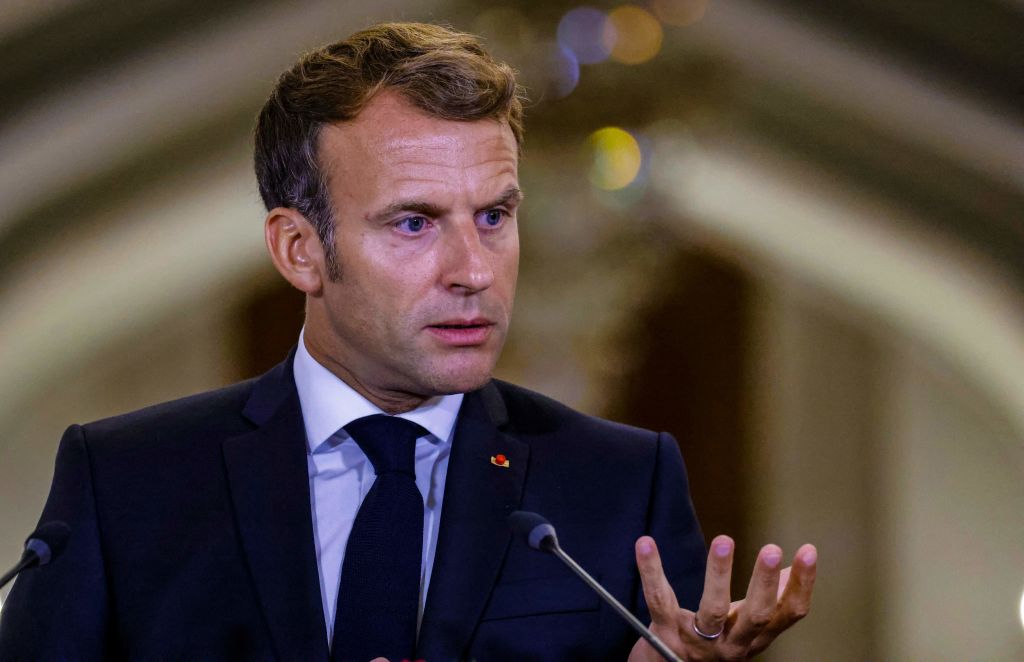In December 2020, in the aftermath of the presidential election, Jake Sullivan, President-elect Joe Biden’s national security adviser, urged European officials to delay a European Union vote on a proposed economic agreement with China, called the Comprehensive Agreement on Investment.
Sullivan, communicating with French and German officials, explained that the incoming Biden administration wanted to have ‘early consultation’ with the Europeans on China, and urged them to hold off until Biden took office to devise a common approach toward Beijing.
Resisting the pressure from Biden, the European Commission announced that the agreement was concluded in principle, pending approval by the European Parliament. That ratification was eventually postponed in response to Chinese human rights violations.
Yet French president Emmanuel Macron continued to insist that the Europeans take steps to maintain their ‘strategic autonomy’ when it came to the rivalry between Washington and Beijing. The message from Brussels to the US was that the EU rejected the notion that the Americans should sit at the head of the table when it came to western relations with China.
This rejection of America’s approach was partially a consequence of China replacing the United States as Germany’s lead trading partner, and also of its growing commercial ties with the EU.
In fact, as Sullivan and Biden’s Asia hand Kurt Campbell tried to sketch the outlines of the administration’s China strategy, it became clear that one of its pillars, abandoning Trump’s unilateral approach and moving towards cooperation with US allies in trying to contain a more assertive China, was facing a major challenge from its Atlantic partners, led by Paris and Berlin.
The resistance to joining the US in dealing with China could be described as part of a ‘Europe First’ strategy, reflecting the EU members’ interests. In fact, in recent months, there has been even talk of the EU staying neutral in the evolving Cold War 2.0. This recalls the attempts by former French president Charles de Gaulle to try to build a European ‘third force’ that would play Washington and Moscow against each other.
But the idea of today’s EU pursuing a Gaullist strategy sounds like a fantasy concocted by an armchair strategist. The ambition of Germany, the so-called ‘leader of Europe,’ is to turn the EU into a huge Switzerland, a peaceful economic behemoth whose members would continue to prosper and spend little on their own defense while their citizens enjoyed long summer vacations.
Yet now that the relatively powerful Britain has left the EU, Macron’s France is not in a position to try to turn the union into a military superpower. Hence all the thumping about European ‘strategic independence’ is just talk, a form of strategic onanism. The Europeans know that any effort on their part to stand up to China would require the usual free-riding on American military support. The Americans also know that.
From that perspective, the decision by President Biden to announce a new military pact with Britain and Australia, aka AUKUS, to deter China, including a plan to develop nuclear submarines for Australia, scuttling a 2016 French deal to build conventional subs, was a strategic masterstroke, and not only as a move to contain Beijing in the Indo-Pacific region.
Making the French furious sent a message to the Europeans — that a militarily impotent EU was not in a position to deny the US its seat at the head of the table when it comes to dealing with China. That was the icing on the AUKUS cake.
Consider the editorial in the French Le Monde last week: ‘For any who still doubted it, the Biden administration is no different from the Trump administration on this point: The United States comes first, whether it’s in the strategic, economic, financial of health fields. “America First” is the guiding line of the foreign policy of the White House.’
Quelle horreur!

























